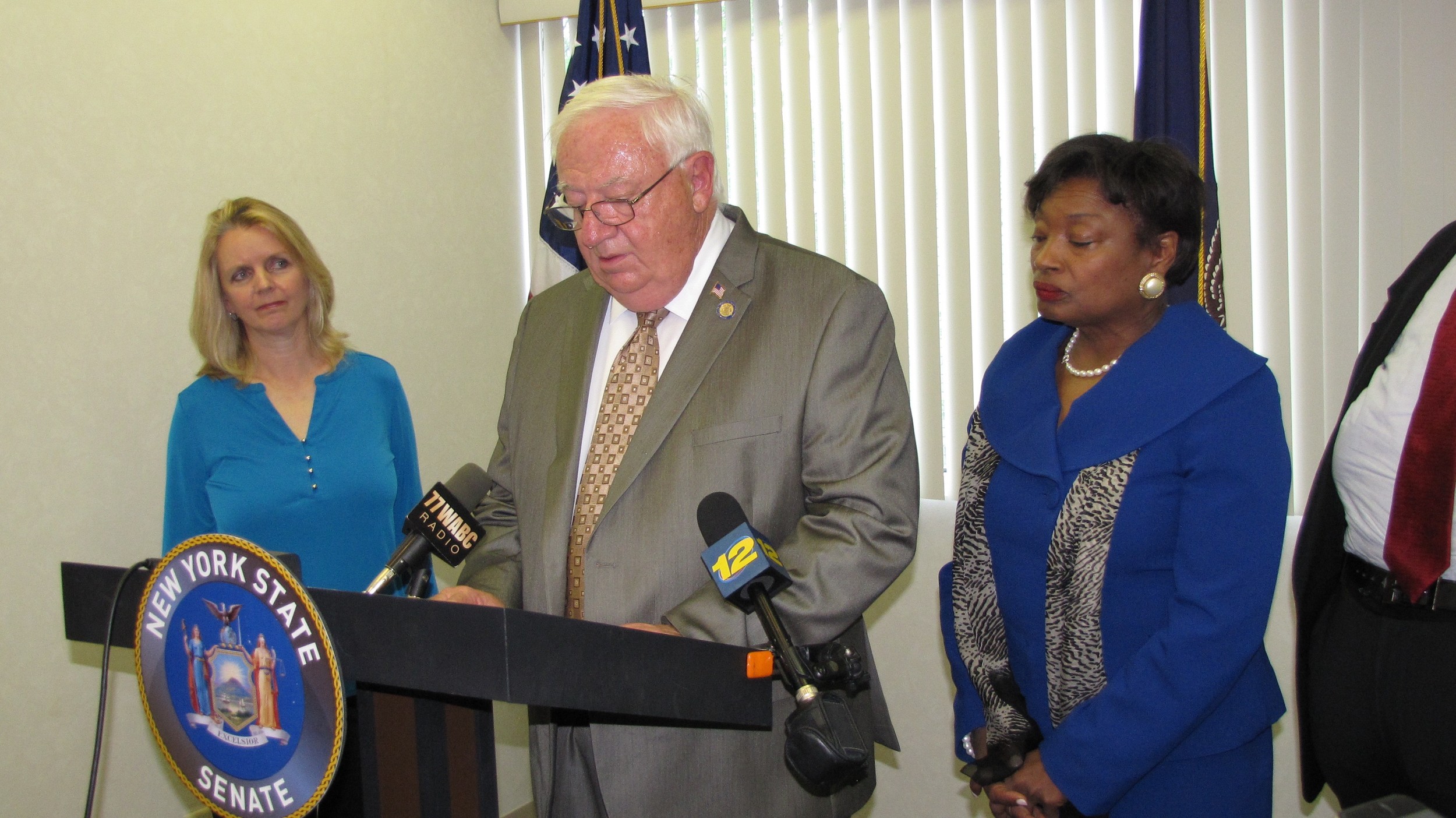Cracking down on illegal dumping
State lawmakers worried about potential cuts to the Superfund Program
New York state lawmakers are growing increasingly concerned about President Donald Trump’s plans to cut funding for the federal Superfund Program, which provides billions of dollars in funding to clean up the worst toxic dumps across the country.
Illegal dumping has been in the news more frequently in recent years on Long Island with a series of high-profile cases in which polluters have spread soil laden with asbestos and other contaminants in parks here.
State Sen. John Brooks, a Democrat from Seaford, who represents the Village of Freeport, and Sen. Todd Kaminsky, a Democrat from Long Beach, held a news conference at Brooks’s Massapequa office last week to address illegal dumping. The conference was originally to be held in Freeport.
Village of Freeport Trustee Debra Mule attended as well, in addition to a handful of other state lawmakers.
According to Brooks, Trump’s recently proposed budget would cut the federal Superfund Program by $330 million, or one-third.
New York has 85 federal Superfund sites, including a number of sites on Long Island, most notably the old Grumman plane factory in Bethpage. There, a toxic plume has been seeping in soil underground since the 1950s. That plume has now reached parts of North Wantagh and Seaford, where monitoring wells have been dug, but cleanup has not begun.
“With the Trump Administration planning to slash environmental programs and protect polluters, it is up to New York state government to protect our health, economy and environment,” said Senate Democratic Leader Andrea Stewart-Cousins.
She offered high praise for Brooks and Kaminsky for bringing the issue of illegal dumping and possible cuts to the Superfund Program into the limelight. “The Senate Democrats understand that New York’s economic and environmental health are deeply connected,” Stewart-Cousins said, “and that is why we must take real action to protect them both.”
Brooks and Kaminsky are proposing:
Making polluters liable through the increase of penalties in efforts to reduce illegal dump.
Providing assistance to local communities by increasing enforcement, such as installing surveillance cameras where dumping is biggest concern.
Requiring a certain percentage of the debris collected by state projects to fulfill recycling requirements.
Assisting homeowners and small businesses in establishing pollution prevention programs.
Scott Brinton contributed to this story.

 47.0°,
Overcast
47.0°,
Overcast 




